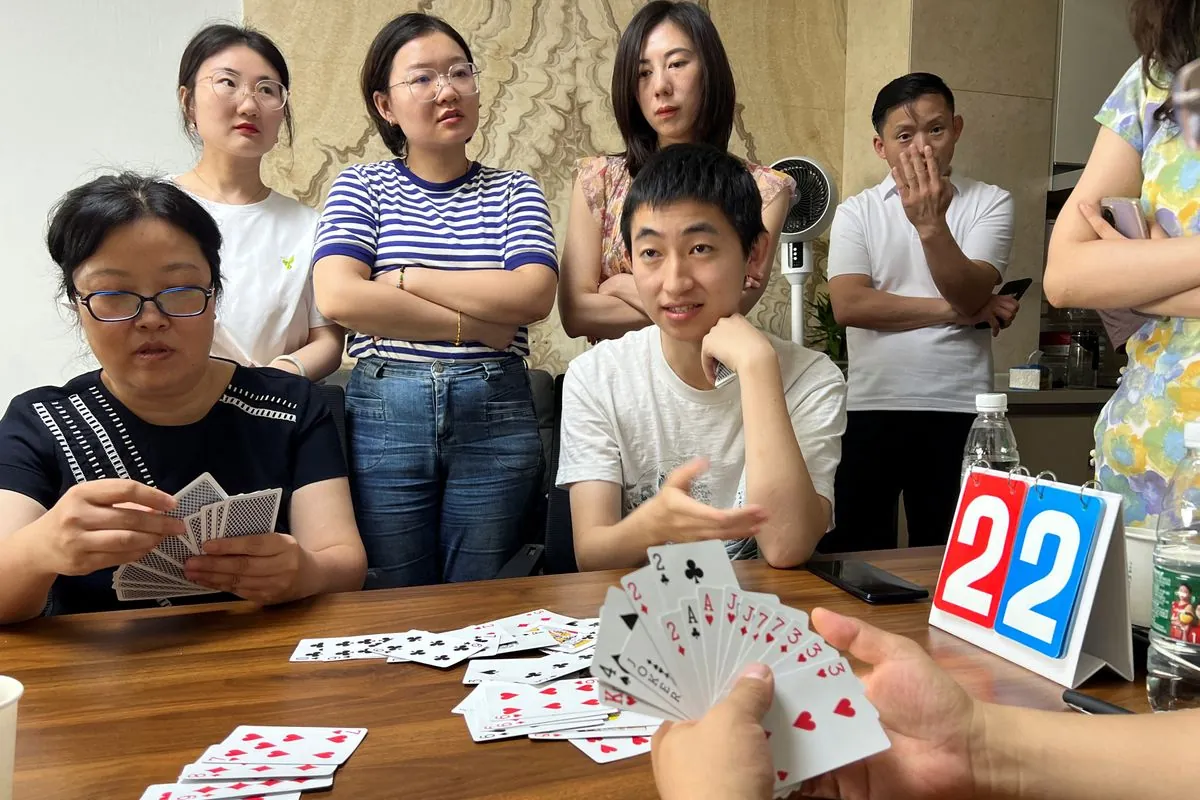In a surprising turn of events, the popular Chinese card game guandan has become the subject of intense criticism from a major Beijing newspaper. The Beijing Youth Daily recently published articles condemning the game, accusing officials who play it of fostering corruption and building illicit networks.
Guandan, a trick-taking card game invented in the 1960s in Jiangsu province, has seen a surge in popularity since its feature in the 2023 Spring Festival Gala. With an estimated 140 million players nationwide, it has been praised as a cultural asset and an alternative to gambling-based games. However, its recent association with official misconduct has cast a shadow over its reputation.
The sudden criticism of guandan reflects broader concerns within the Chinese Communist Party (CCP) about informal networks and their potential for corruption. The game has reportedly become a vehicle for building relationships among officials and businesspeople, echoing the role of activities like golf in Western business circles.
The CCP's wariness of such informal ties stems from its historical struggles with factionalism. The party has long viewed internal cliques as a significant threat, leading to periodic campaigns against such groupings. This latest criticism of guandan can be seen as part of this ongoing effort to maintain party discipline and cohesion.
Interestingly, the use of games for networking in Chinese politics is not without precedent. Former leader Deng Xiaoping was known for his love of bridge, which he used to build and maintain influential connections even during periods of political disfavor. This historical context adds a layer of complexity to the current situation.
The criticism of guandan also appears to be part of a broader pattern of deflecting blame for China's economic challenges onto individual officials rather than addressing systemic issues. By focusing on the supposed moral failings of lower-level authorities, the leadership may be attempting to sidestep responsibility for larger economic and governance problems.
As of now, it remains unclear where China's top leadership stands on the guandan issue. While the Beijing Youth Daily is a significant publication, it does not represent the highest levels of party authority. However, reports of internal bans on the game for officials suggest that the criticism may have already had practical consequences.
For Chinese officials, this development may signal a need to find new, less controversial ways to build relationships and conduct informal business. As the situation unfolds, it serves as a reminder of the complex interplay between politics, culture, and social norms in contemporary China.
